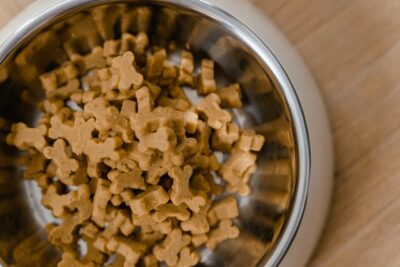Overview
Introduction to Shih Tzu Life Span

For owners and enthusiasts of the Shih Tzu breed, understanding the intricacies of their beloved companions’ life span is both a fascinating and crucial aspect of pet care.
From the moment a Shih Tzu puppy enters a household, questions about their longevity, health, and well-being become central to the owner’s concerns.
This article aims to explore the various factors that influence a Shih Tzu life span, offer realistic expectations for owners, and provide essential care tips to ensure a fulfilling and healthy life for these charming dogs.
What Determines a Shih Tzu’s Life Expectancy?
A Shih Tzu’s life expectancy is influenced by various factors inherent to the breed and individual dogs. As a toy breed, Shih Tzus are generally predisposed to longer life spans compared to larger breeds.
Factors such as genetics, diet, exercise, environment, and healthcare provided by Shih Tzu owners play significant roles in determining their average life expectancy, which typically ranges from 10 to 16 years.
Understanding these factors and providing proper care can help ensure a happy and healthy life for Shih Tzu dogs. The Shih Tzu life span can vary based on these factors, so it’s crucial for owners to be attentive to their pet’s needs throughout their lifetime.
Understanding the Average Life Span of Shih Tzus
Understanding the average life span of Shih Tzus is crucial for their owners. Typically, the life expectancy of Shih Tzus, like many small breed dogs, ranges between 10 to 16 years. However, individual factors such as genetics, diet, exercise, and healthcare can influence a Shih Tzu’s lifespan.
Despite being one of the longer-lived dog breeds, it’s important for owners to provide proper care to ensure their Shih Tzu lives a healthy and fulfilling life.

Understanding the Shih Tzu Breed
History and origin
Understanding the Shih Tzu breed’s history and origin sheds light on their unique characteristics. Originally bred in Tibet and known as the “little lion dog,” Shih Tzus were prized companions and watchdogs in ancient times.
They are believed to have been bred from crossing the Lhasa Apso with small dogs from China. Shih Tzus, classified as toy breeds, are known for their longer life expectancy compared to many other small dog breeds.
Physical characteristics
Understanding the Shih Tzu breed’s physical characteristics includes recognizing their distinctive coat and floppy ears. Shih Tzus are known for their luxurious, double-layered coats that require regular grooming to prevent matting. Their coat is also hypoallergenic, making them a great choice for people with allergies.
Shih Tzu’s coat come in various colors and patterns, adding to their charm. The Shih Tzu’s floppy ears are another defining feature, contributing to its regal appearance and appeal as a companion dog.
Temperament and behavior
Understanding the Shih Tzu breed’s temperament and behavior is key to providing them with appropriate care. Shih Tzus are known for their friendly and affectionate nature, making them excellent companions.
However, they can exhibit destructive behavior if not properly trained or stimulated. Providing them with regular exercise, mental stimulation, and training can help prevent such behavior and ensure a harmonious relationship with their owners.

Genetics and Shih Tzu Lifespan
The Role of Genetics in Shih Tzu Longevity
Genetics play a significant role in determining the Shih Tzu life span, as with most dog breeds. Responsible breeding practices aim to produce healthy dogs with a longer life expectancy.
While Shih Tzus are generally considered a healthy breed, they can be prone to certain genetic diseases, such as hip dysplasia and patellar luxation, which can affect their average lifespan.
Providing proper care, including regular veterinary check-ups and a balanced diet, can help ensure a long and healthy life for Shih Tzus.
Breeding Practices and Their Impact on Life Span
Breeding practices significantly impact the lifespan of Shih Tzus. A responsible breeder considers hereditary diseases and strives to produce puppies with good health and longevity.
By carefully selecting breeding pairs and conducting health screenings, a responsible breeder can reduce the risk of passing on genetic disorders to young puppies. This commitment to quality breeding contributes to the overall health and lifespan of Shih Tzus.

Environmental Factors Shih Tzu Lifespan
Influence of Environment on Shih Tzu Life Span
Environmental factors can significantly influence the lifespan of Shih Tzus. Responsible pet parents play a crucial role in providing a safe and nurturing environment for their young puppies.
Factors such as diet, exercise, living conditions, and access to veterinary care can all impact the health and longevity of Shih Tzus. By ensuring a healthy environment, pet parents can help their Shih Tzus live long and fulfilling lives.
Creating a Healthy Environment for Your Shih Tzu
Creating a healthy environment for your Shih Tzu is crucial for maintaining their quality of life. Ensure your home is clean and free of toxins, as Shih Tzus are sensitive to environmental pollutants.
Provide a comfortable, safe space with appropriate temperature and lighting to promote their well-being. Regular grooming, exercise, and a balanced diet are also essential for maintaining your Shih Tzu’s quality of life.

Nutritional Needs for Shih Tzu’s Longevity
Essential Nutrients for Shih Tzu Health and Longevity
To ensure a long and happy life for your Shih Tzu, it’s essential to provide them with a healthy diet rich in essential nutrients. This is especially important for young puppies, as it sets the stage for their future health.
High-quality dog food tailored to the needs of Shih Tzus can help prevent skin allergies and other health issues, contributing to their overall well-being and potentially extending their lifespan, which typically ranges from 10 to 18 years.
Best Diets and Feeding Practices for a Longer Life
To support the longevity of Shih Tzu dogs, it’s important to focus on their nutritional needs. Incorporating fish oil into their diet can be beneficial for their overall health, including joint health, which is particularly important for small dogs like Shih Tzus.
Ensuring they receive a balanced diet and appropriate feeding practices can help maximize their lifespan, which typically ranges from 10 to 18 years.

Exercise and Activity Levels for Shih Tzu Lifespan
Importance of Exercise for Shih Tzu Longevity
Regular exercise is crucial for maintaining the health and longevity of Shih Tzu dogs, whose lifespan typically ranges from 10 to 18 years. Pet parents should ensure their Shih Tzu gets enough physical activity to stay healthy and happy.
While Shih Tzus may not require as much exercise as larger dogs or other breeds, regular walks and playtime are important for their overall well-being.
Ideal Exercise Routines for a Healthy Shih Tzu
Establishing a regular exercise routine is essential for keeping your Shih Tzu healthy throughout their life, which typically spans 10 to 18 years. For young puppies, gentle play and short walks are ideal to avoid overexertion.
As your Shih Tzu grows, you can gradually increase the length and intensity of their exercise to keep them fit and healthy. Regular physical activity not only helps maintain a healthy weight but also promotes good mental health and overall well-being for your Shih Tzu dog.

Preventive Healthcare Measures for Shih Tzu Life Span
Vaccinations and Preventive Care for Longevity
To help your Shih Tzu live a long and healthy life, it’s important to stay up-to-date with their vaccinations and preventive care, especially since toy breeds like Shih Tzus typically live 10 to 18 years. Regular vet check-ups can help catch any potential health issues early.
Preventive measures such as regular ear cleanings can help reduce the risk of ear infections, which are common in Shih Tzus. By addressing these concerns proactively, you can help prevent common causes of death and ensure your Shih Tzu’s health and longevity.
Regular Health Checkups and Health Monitoring
Regular health checkups are crucial for Shih Tzu dogs throughout their lifespan, starting from when they are young. These checkups help monitor their health and catch any potential issues early, such as ear infections, dental problems, and other health problems common in the breed.
As your Shih Tzu ages, regular checkups become even more important to screen for conditions like mammary gland tumors and mast cell tumors, which can affect their longevity. By staying proactive with their healthcare, you can help ensure a longer, healthier life for your Shih Tzu.

Common Health Issues and Their Impact on Shih Tzu Life Span
Genetic Health Conditions in Shih Tzus
Shih Tzus are prone to certain genetic health conditions, such as kidney disease and bone cancer, which can impact their health and longevity. These conditions can lead to serious health issues and may contribute to causes of death in the breed.
Additionally, Shih Tzus’ brachycephalic (short-nosed) anatomy can make them susceptible to brachycephalic obstructive airway syndrome, a condition that can affect their breathing and overall quality of life, especially when they are young puppies. Regular veterinary checkups and awareness of these conditions can help manage and prevent potential health issues in Shih Tzus.
How to Identify and Manage Common Health Issues
Identifying and managing common health issues in Shih Tzus is crucial for their well-being. Keep an eye out for symptoms such as excessive itching, redness, or discharge in the ears, which could indicate an ear infection.
Regular dental check-ups and teeth cleaning can help prevent dental problems. Watch for signs of respiratory distress, especially in hot weather, due to their brachycephalic (short-nosed) anatomy. Regular veterinary check-ups and a healthy lifestyle can help manage and prevent common health issues in Shih Tzus, ensuring they live long and healthy lives.

Mental and Emotional Well-being of Shih Tzu
Mental Stimulation and Enrichment for Longevity
The mental and emotional well-being of Shih Tzus is crucial for their longevity. Providing mental stimulation and enrichment activities, such as interactive toys, puzzles, and training exercises, can keep their minds active and engaged.
This not only promotes a healthy brain but also helps prevent boredom and destructive behaviors, contributing to a longer and happier life for Shih Tzus.
The Importance of Bonding and Companionship
The mental and emotional well-being of Shih Tzus is greatly enhanced by bonding and companionship. Shih Tzus are known for their affectionate nature and form strong bonds with their owners.
Providing them with love, attention, and social interaction helps fulfill their need for companionship, contributing to their overall happiness and well-being.

Grooming and Hygiene Practices for Shih Tzu
Grooming Routines for a Healthy Coat and Skin
Establishing a regular grooming routine is essential for maintaining a healthy coat and skin for Shih Tzus. Brushing their coat daily helps prevent matting and tangles, while also distributing natural oils for a shiny coat.
Regular baths with a gentle shampoo designed for dogs can help keep their skin clean and free of irritants, promoting overall skin health.
Dental Care and Hygiene Tips for Longevity
Dental care is crucial for the longevity of Shih Tzus. Regular brushing with a dog-friendly toothbrush and toothpaste helps prevent plaque buildup and dental issues.
Providing dental chews or toys can also help maintain good oral hygiene and contribute to a longer, healthier life for your Shih Tzu.

Aging Gracefully: Senior Care Tips for Senior Shih Tzus
Adapting Your Shih Tzu’s Care as They Age
As your Shih Tzu dog ages and becomes a senior dog, it’s important to adapt their care to meet their changing needs. Consider adjusting their diet to accommodate any changes in metabolism and energy levels.
Regular veterinary check-ups become even more crucial to monitor for age-related health issues.
Providing a comfortable environment, appropriate exercise, and companionship can help your senior Shih Tzu maintain a good quality of life. Additionally, consider their interactions with other animals, ensuring they are safe and comfortable.
Special Considerations for Senior Shih Tzu
Senior care for toy breeds like Shih Tzus requires special considerations. As Shih Tzus live into their senior years, it’s important to monitor their weight, as obesity can exacerbate age-related issues.
Regular veterinary check-ups become even more crucial to catch and manage any health issues early. Adjusting their diet to meet their changing nutritional needs and providing gentle exercise can help them age gracefully.

Emotional Considerations for Owners
Coping with the Aging Process of Your Shih Tzu
Coping with the aging process of your Shih Tzu can be emotionally challenging. It’s important to acknowledge your feelings and seek support from friends, family, or support groups.
Providing your senior Shih Tzu with love, comfort, and quality care can help both you and your dog navigate this stage of life with compassion and understanding.
Seeking Support and Resources for Pet Owners
Seeking support and resources for pet owners can be beneficial when dealing with emotional considerations related to your Shih Tzu. Joining online forums or local pet owner groups can provide a sense of community and understanding.
Additionally, consider speaking with a veterinarian or animal behaviorist for professional guidance and support.
Conclusion to Shih Tzu Life Span
Summary of Factors Influencing Shih Tzu Life Span
The Shih Tzu life span is influenced by various factors such as genetics, diet, exercise, environment, and healthcare. Shih Tzus are generally predisposed to longer life spans compared to larger breeds due to being a toy breed.
Common causes of death in Shih Tzus include genetic health conditions and respiratory issues related to their brachycephalic anatomy.
Celebrating the Joy of a Long and Fulfilling Life with Your Shih Tzu
In conclusion, understanding the Shih Tzu life span is essential for providing them with the best possible care. Factors such as genetics, diet, exercise, environment, and healthcare all play a significant role in determining a Shih Tzu’s longevity.
By following the tips and guidelines outlined in this article, owners can enhance their Shih Tzu’s longevity and ensure a fulfilling and healthy life for these beloved companions.
For those looking to add a Shih Tzu to their family, our website offers Shih Tzu puppies for sale in Florida and surrounding areas. Our puppies are thoughtfully bred from reputable breeders, ensuring they are healthy, friendly, and ready to become cherished members of your family. Check out our list of available puppies to find your perfect furry companion.
Frequently Asked Questions (FAQs) About Shih Tzu Life Span
- What is the average Shih Tzu life span?
- The average life span of a Shih Tzu is typically between 10 to 16 years. However, with proper care and attention to their health, some Shih Tzus can live even longer.
- How does the life expectancy of Shih Tzus compare to larger dogs?
- Shih Tzus generally have a longer life expectancy compared to larger dog breeds. Their smaller size and genetic makeup contribute to their relatively longer life span.
- At what age is a Shih Tzu considered a young puppy?
- A Shih Tzu is considered a young puppy from birth to around one year of age. During this time, they require special care and attention to ensure proper growth and development.
- What factors can influence the life span of a Shih Tzu?
- Several factors can influence a Shih Tzu’s life span, including genetics, diet, exercise, environment, and healthcare. Providing a healthy lifestyle and regular veterinary care can help maximize their life expectancy.
- Do Shih Tzus get along well with other breeds and animals?
- Shih Tzus are generally friendly and sociable dogs that can get along well with other breeds and animals, especially when properly socialized from a young age.




